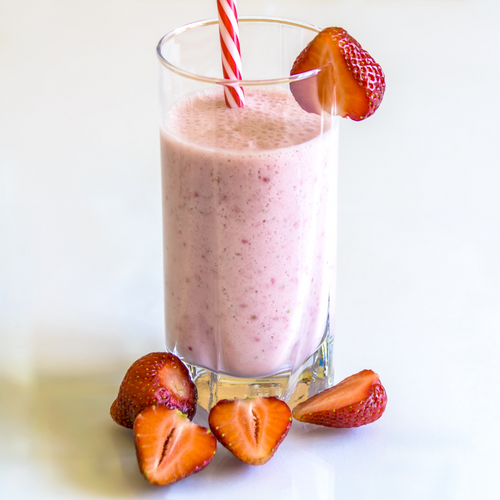1. You have chronic digestive disorders
The most common digestive disorders range from bloating to diarrhea, constipation , abdominal pain and even gastroesophageal reflux. The problem is that it is not always easy to identify the causes of these disorders which can be due to stress but which are also often linked to an unbalanced microbiota .
2. You often experience anxiety
Recent research has highlighted microbiota disorders in people with anxiety anddepression . Some probiotics can reduce the level of cortisol, the stress hormone.
3. You gain weight easily
There are dozens of factors that contribute to weight gain , starting with processed food, lack of sleep , chronic stress ... But the intestinal flora also plays a role! Researchers believe that intestinal flora influences the feeling of fullness, the regulation of appetite and the level of certain hormones involved in weight management such as leptin.
4. You get sick often
This is a sign that your immune system is not fully performing its functions. In fact, our intestinal microbiota constitutes 80% of our immune system . If our microbiota is unbalanced, it protects us less well from viruses and infections.
5. You suffer from autoimmunity
Rheumatoid arthritis, celiac disease, Hashimoto's thyroiditis , Sjoegren's syndrome, lupus... Autoimmune diseases are on the rise. However, they almost all start with intestinal permeability , a sign of an imbalance in the microbiota.
6. Your skin plays tricks on you
Chronic hives, acne, eczema can appear in the event of an imbalance in the intestinal flora!
7. You took antibiotic treatment
Antibiotics kill both pathogenic and beneficial bacteria. If the latter are not in sufficient number and not sufficiently diversified, they can be supplanted by less favorable bacteria, leading to intestinal inflammation and diarrhea .
How to rebalance your intestinal microbiota?
Tip #1: Increase your prebiotic fiber intake
Prebiotics are the fuel for our good bacteria! They are mainly found in fruits, vegetables, oilseeds and legumes.
Tip #2: Stock up on lacto-fermented foods
Lactofermented foods contain natural probiotics. Probiotics are found in lacto-fermented vegetables (cabbage, beets, sauerkraut, carrots), brined foods (pickles, olives, etc.), and also lacto-fermented drinks (Kefir, Kombucha).
Tip #3: Limit the consumption of processed foods
These foods are pro-inflammatory and harm the balance of our intestinal microbiota.
Tip #4: Take a course of Essential Probiotics at each change of season
Probiotics are beneficial bacteria that support our own good intestinal bacteria, which inhabit our digestive tract and particularly our colon. Probiotics thus make it possible to strengthen the intestinal microbiota and fight against the disappearance of certain populations of essential and protective bacteria in favor of pathogenic populations which can proliferate. An imbalance in the intestinal microbiota (when bad bacteria take over good bacteria) contributes to the appearance of numerous disorders, such as: transit disorders, digestive discomfort (abdominal pain and cramps, gas and bloating), lower resistance to external aggressions…
Our L'Indispensable probiotics treatment contains 8 strains and 28 billion CFU* to stock up on good bacteria and strengthen our intestinal microbiota!













